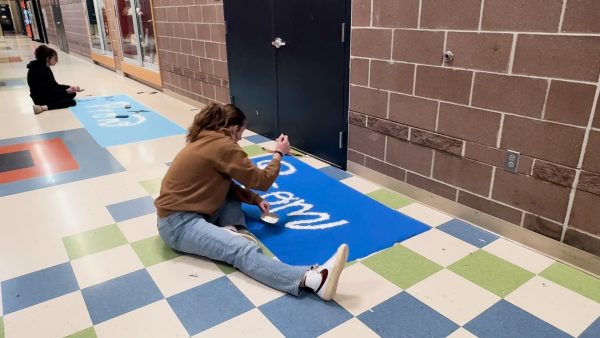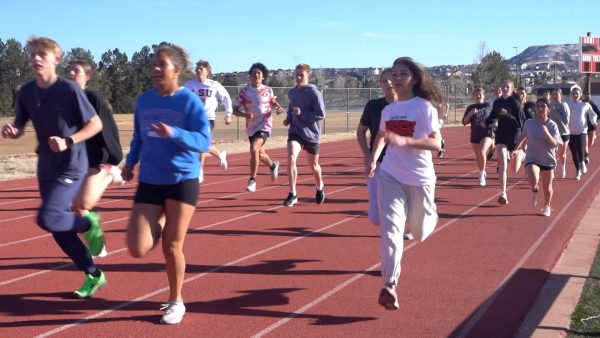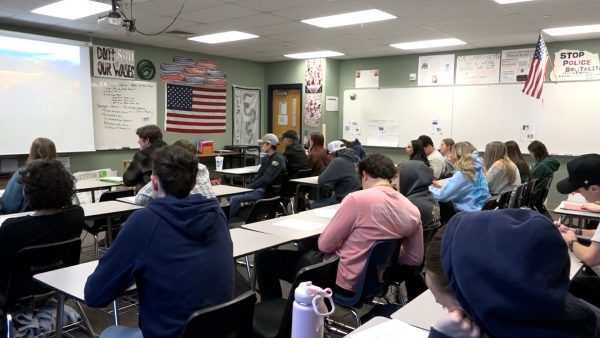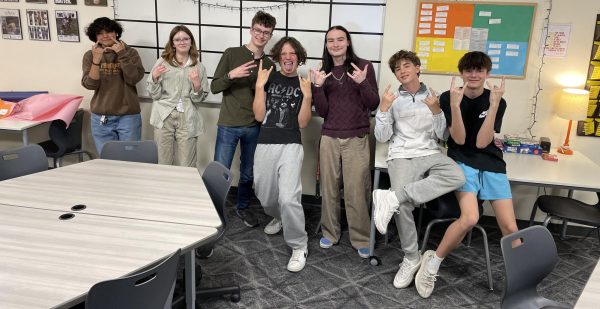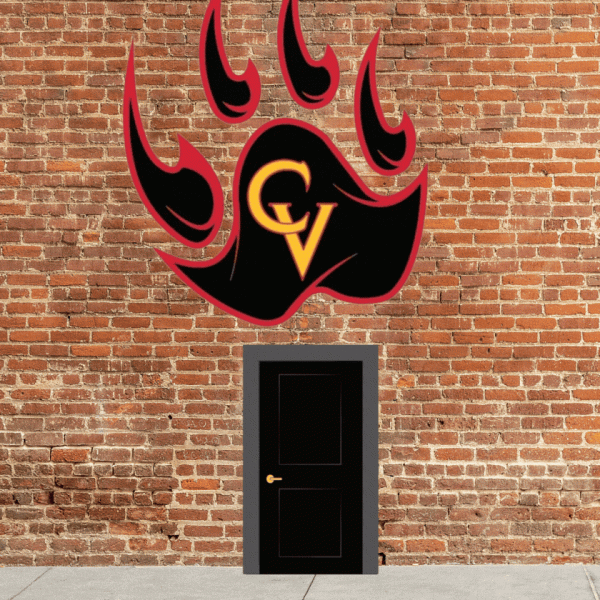The Reward of Academic Ambition
Perspective From a Dedicated AP Student
Elizabeth Reidel has her class load packed: this year, she’ll be taking six AP classes, an ACC class, and orchestra, alongside speech and debate and National Honor Society. She is also president of the Technology Student Association. Sometimes she stays up until four in the morning doing work. She’s used to it by now, having taken multiple challenging courses since freshman year. Despite the mountain of homework and extra pressures Riedel describes, she knows they’re making her a better student.
“AP classes have helped further me as a person, academically and socially. It’s given me a great opportunity,” she said.
As early as second grade, Riedel started on an ambitious path. She was placed ahead in math and identified as gifted in elementary school. Her career aspirations were in law. However, when she got to high school, her interests shifted.
“At one point I didn’t think I wanted to be in STEM or mathematics, but I really started changing when I got into higher level math and seeing conceptual things. The first AP math class I took was AP Stats and that cemented math as something I love to do with my life,” Reidel said.
So far in her junior year, she’s taken an AP class in almost every core subject: science, math, literature, and social studies. She says that higher level courses may be a good way to see the significance of individuals’ contribution to a bigger group.
“People in AP Literature are very different from people in AP Physics… It’s interesting to compare the two, and what I’ve mainly noticed from taking these courses is that you meet a lot of interesting people and realize that everyone has their own unique ideas and no one is better than anyone else. It shows me that we all depend on each other as humans. Teamwork and cooperation is very important and very human,” Riedel said.
Riedel, being a math enthusiast, plans on pursuing a career in mathematics.
“[Math] takes the complexities of the world which are introduced by humans and breaks it down into simple, universal laws that can’t be disputed. It’s beautiful in that it is simple,” Riedel said.
Besides broadening her perspective, Riedel explains that higher level classes are a huge help to get her where she wants to be.
“It’s a time commitment, there’s a lot of homework and then the exam, but I would definitely recommend that you take one or two AP courses. The reward is the weighted GPA, which looks really nice on college transcripts, and you could potentially save a lot of money in college if they let you bypass classes with exam credit,” Riedel said.
Like many students, Riedel struggles with procrastination. She finds herself waiting until the last minute to do something and regretting it. This year, with eLearning and the hybrid model, it’s especially hard to begin work. Riedel says she is determined to shake off this habit before the rush of college arrives. Lately, she has been pushing herself to improve.
“Motivation came internally. I had to do it for myself,” Riedel said.
Riedel is really making the best of her time now so she’ll get farther in the future. She truly believes in hard work and asking oneself, “Is this the most I can do?”
“Nothing’s impossible if you’re willing to put in the effort. Dreams come true if you want them to come true. If you’re not putting in the work, you clearly don’t want it enough,” Riedel said.
Riedel thinks that everyone should challenge themselves academically, as it has shown her a lot of fascinating things she wouldn’t have otherwise discovered.


![Junior Elizabeth Riedel studies at a Speech and Debate meeting on October 6, 2020. She has learned to work especially hard in higher-level courses. “Something I’ve learned from my current AP courses is that you can’t just wing [an exam], you have to actually study,” she said.](https://cvstudentmedia.com/wp-content/uploads/2020/10/AM7_2621-900x599.jpg)
